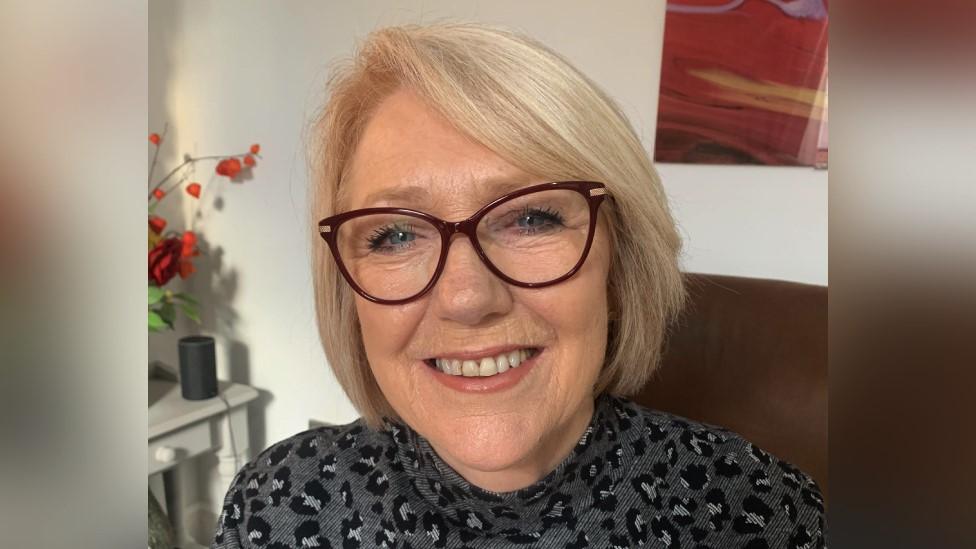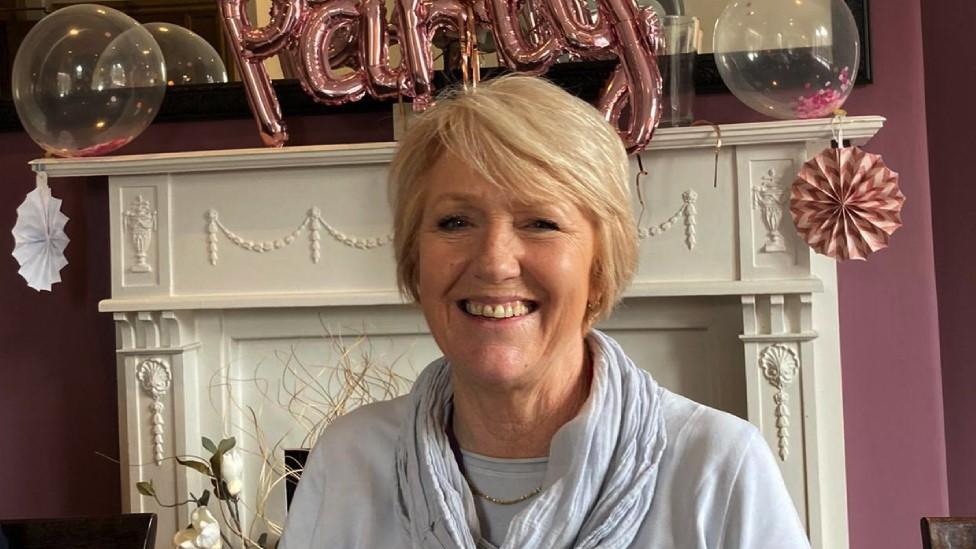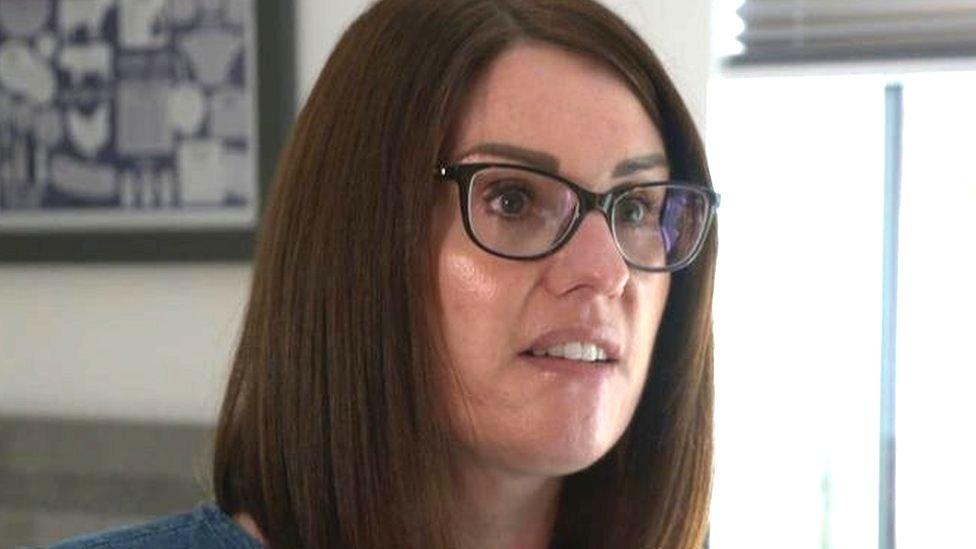Women's health: My chronic UTI has shaped my whole life
- Published
Christine Terzo says her chronic UTI shaped her whole life.
One in every two women will suffer a urinary tract infection (UTI) at some point in their life.
But for women like Angela Dullaghan, what is usually an easily curable infection has ruled her life.
The 61-year-old has suffered with chronic UTIs since childhood and estimates she has spent £9,000 on treatment.
"For years, I thought it was my fault," said Angela. "It impacted on my work, my relationships and my social life."
Angela, who lives in Haverfordwest, Pembrokeshire, said she had seen five NHS urologists since attempting to get treatment for her condition over the past two decades, and has often felt dismissed.

Angela Dullaghan says she tried everything she could think of to get rid of her UTI
"One consultant said to me, it sounds as if you know more about this condition than I do," Angela said.
Another high-fived her after she acknowledged it was unlikely he could help her, she added.
The Chronic Urinary Tract Infection Campaign (Cutic), an organisation campaigning for better recognition of the condition, said this lack of medical awareness is what pushed them start their work.
"Around the beginning of 2016, a group of patients got together and decided that we really needed to do something," said Carolyn Andrew, one of Cutic's directors.
Its first objective was to address UTI testing, as the tests available often fail to pick up on chronic and recurrent infections.
This is something that Angela has experienced first-hand:
"There have been times when I have been absolutely crying and pain and discomfort, send a urine specimen to the GP's surgery and there's nothing abnormal detected," she said.

Christine Terzo says it is 'about time chronic UTI sufferers are listened to'
Christine Terzo, from Ruthin, Denbighshire, has also suffered with chronic UTIs at several points during her life, most recently for the past nine years.
The 64-year-old, who was forced to retire early due to her condition, said it has "shaped her whole life."
Christine also said she was being told there was no infection in her bladder and denied antibiotics when she was in serious pain.
"I had steroid cream. I had pessaries, external. I had oestrogen cream. I had all sorts of things when really all I needed was antibiotics," she said.

Prof Jennifer Rohn is part of a team trying to develop better testing and treatment for UTIs
Prof Jennifer Rohn from University College London, whose research focuses on chronic and recurrent UTIs, added "old-fashioned" tests used for UTIs can be especially bad at picking up on chronic infections.
"Basically, the bacteria have ways of getting through the [bladder wall] and setting up shop inside the cells.
"And of course, when they're inside the cells, the immune system can't see them. Also antibiotics - most of them cannot get in there."

What is a UTI?
UTIs are usually caused by bacteria, most commonly from a person's own bowels, entering the urinary tract through the urethra, the tube that carries urine out of the body
Symptoms of UTI include a burning feeling on passing urine and the sensation of needing to pass urine frequently, fever, shivers and pain
Chronic UTIs can be caused by that bacteria entering the lining of the bladder

It was due to this lack of adequate testing and treatment available Dr Catriona Anderson set up her private clinic, Focus, where she often treats patients with chronic UTIs.
There, the team uses more detailed tests which can identify bacteria in lower numbers.
Cutic estimated 1.7 million women across the UK suffer with chronic UTIs, and Dr Anderson said it would be possible to run these sensitive tests in the NHS for that amount of people.
"It's not easy to apply this sort of test to huge populations, but actually you can run it for the number of patients that have this condition," she said.
'I felt listened to'
Both Angela and Christine found relief in the past few years upon discovering Cutic's Facebook support group.
They pursued private treatment with Prof James Malone-Lee - an expert in chronic UTIs - and other consultants at the Harley Street Clinic in London on the advice of other sufferers.
"Finally, after 30-odd years, I felt listened to," Christine said of her first visit to the clinic.
However, while both Angela and Christine are both now in treatment, their condition continues to impact heavily on their lives.
Angela said that factoring in travel, accommodation, medication, and consultation, she has spent "in the region of £9,000" over the past seven years on her UTI, and still budgets about £100 a month to go towards medical expenses.
Christine was referred to the only NHS specialist clinic in the UK, at the Whittington Hospital in London.
While this eliminated some costs, she still had to pay for the train fare to London and back to north Wales for her appointments, something that she acknowledges many people would be unable to afford.
"I'm very fortunate, but it's still a chunk out of my money," she added.

Christine Terzo says that before she began treatment, she thought she was having a mental breakdown due to doctors dismissing her condition
Raising awareness and making treatment more accessible is one of Cutic's main aims going forward, after they successfully helped have chronic UTIs added to the NHS advice page earlier this year.
The group are also focused on raising recognition of the condition in children, with zero specialists being able to treat them.
The Welsh government said: "Where possible health boards provide treatment locally but sometimes more specialist treatment elsewhere is needed.
"NHS Wales is developing a 10-year plan to detail how it will meet the standards set out in the Women and Girls Health Quality statement."
- Published8 March 2022

- Published8 March 2022

- Published11 November 2021
